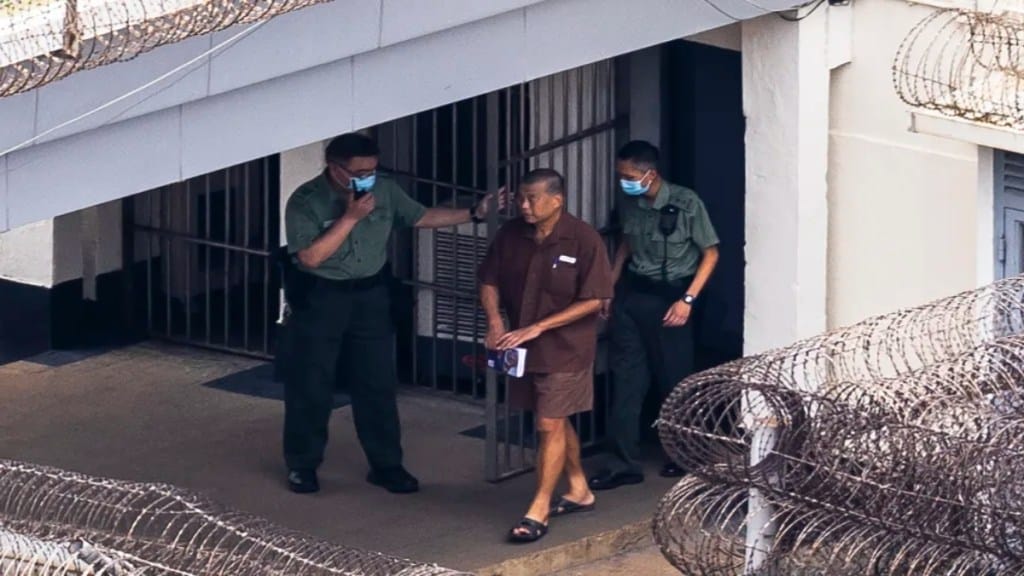In the final stretch of his campaign for a second US presidential term, Donald Trump in October 2024 made an unequivocal pledge that he would secure the release of Jimmy Lai, a Hong Kong media tycoon and prominent pro-democracy figure. Speaking in an October podcast interview, Trump declared with characteristic certainty, “100% I’ll get him out. He’ll be easy to get out.”
Who is Jimmy Lai?
Nearly a year later, Lai remains in a maximum-security prison. The 77-year-old founder of the now-defunct Apple Daily has spent over 1,600 days behind bars, much of it in solitary confinement. Accused of colluding with foreign forces and inciting sedition under Beijing’s 2020 national security law, Lai faces the prospect of life imprisonment. He has pleaded not guilty to all charges.
This week, a Hong Kong court began hearing closing arguments in his landmark trial, a case that has become a litmus test of Beijing’s crackdown on dissent and of Trump’s willingness to raise human rights issues while courting a trade agreement with Chinese leader Xi Jinping.
Why is Lai in jail?
Trump has suggested that Lai’s case could be tied to trade negotiations with China, telling radio host Hugh Hewitt that raising the issue with Xi was “a very good idea”. According to those close to Lai, US officials have mentioned his situation informally during bilateral talks, though without clear commitments.
Mark Clifford, president of the Committee for Freedom in Hong Kong Foundation, said US Treasury Secretary Scott Bessent was tasked by Trump to make Lai’s release part of discussions ahead of meetings in London. “I’m told Bessent made it a mission,” Clifford noted.
While the White House has reaffirmed Trump’s support for Lai’s release, Beijing has condemned what it calls foreign interference. The Hong Kong government has echoed that position, warning that political pressure undermines judicial independence.
All about Lai
Born in mainland China, Lai fled to British-ruled Hong Kong at the age of 12, working his way from the factory floor to become a clothing magnate. The 1989 Tiananmen Square massacre politicised him, prompting a career shift into publishing. His newspaper, Apple Daily, became a bastion of pro-democracy journalism, often drawing Beijing’s ire.
A vocal supporter of Trump, Lai met senior US officials during the 2019 protests, urging them to defend Hong Kong’s freedoms. His critics say such advocacy breached the national security law by lobbying for sanctions against China and Hong Kong. His defence counters that these activities ceased after the law’s enactment.
In Washington, support for Lai cuts across party lines. Both US Congress and the Catholic community have urged his release, while Britain’s Prime Minister Keir Starmer and Foreign Secretary David Lammy have publicly raised the case with Chinese leaders.
What do we know about the case?
Advocates warn that Lai’s age and health. He suffers from diabetes and endures extreme prison conditions, making his continued detention a race against the clock. His son, Sebastien Lai, describes the prolonged solitary confinement as “a form of torture” and fears the summer heat in his father’s concrete cell could prove deadly.
Experts note that Hong Kong’s chief executive has the power to pardon or commute sentences, particularly for elderly prisoners in poor health, if Beijing approves. Whether such political will exists remains uncertain.
For Lai’s supporters, his imprisonment is not only a personal tragedy but also a defining test of Hong Kong’s freedoms. “If he dies in prison,” Clifford warns, “he’ll be a martyr forever, a lasting symbol of resistance to Beijing’s rule.”


